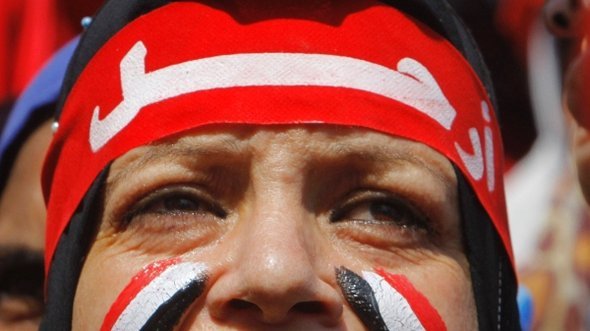A Clear Message for the Brotherhood
A few million demonstrators are a force to be reckoned with – a force that no elected president can ignore. Morsi and the Muslim Brotherhood have driven more people onto the streets in protest than former President Hosni Mubarak ever did.
When considered in the light of the 'off with his head' chants on both sides, the protests have been astoundingly peaceful. Instead of a bloodbath, there is a festival atmosphere. Instead of bread riots, we are witnessing an uprising of the strangled middle classes.
Instead of a revolt against Islam, this is a rebellion against a paranoid secretive organisation that wants to imprison a tolerant 7,000-year-old culture inside its bigoted doctrine. Using a country as a laboratory for a pedagogical experiment only works either over a long period of time or with a great deal of pressure.
Spectacular failure
Naturally, uprisings against elected presidents do not come highly recommended for parliamentary democracies.

However, they are typical of post-revolutionary, post-authoritarian systems that are in transition: the expectations are immense, the economy crippled, the institutions weakened, the old regime destructive, political personnel inexperienced. All that remains is the street.
No one knows who will be in charge in Egypt at the end of this week. Morsi, perhaps? An interim president? The army? The attacks on the grandiose party headquarters of the Muslim Brotherhood – such a potent symbol of the brotherhood's pretensions to power – and the first deaths, seem to indicate that the violence will continue to escalate.
Amidst all this uncertainty, however, are a few certainties: the Muslim Brotherhood, which seemed to be utterly unbeatable just a year ago, has failed spectacularly. Morsi's election victory seemed to be the crowning achievement of the Islamists' victory march. It looked as if the twilight of the autocrats was almost certain to be followed by the dawn of the era of the pious.
Now, however, the Muslim Brotherhood – the mother of all Islamist groups – has become a dead weight around the neck of religious parties across the entire region. The demonstrative piety of the Muslim Brotherhood could not mask its political errors.
A monopolisation of faith
Many conservative Egyptians even interpreted this piety as an attempt to monopolise their faith. Members of the Muslim Brotherhood do not make better politicians; nor do they make better Muslims. This realisation – and this is another characteristic feature of transition systems – spread like wildfire.
If the Muslim Brotherhood were clever, it would now withdraw, read a few books about inclusion, and attempt a new beginning in a few years' time. Part of the Egyptian population prefers religious parties. This part of the electorate needs a party, otherwise it will become fair game for the radicals.
If the opposition is clever, it will give the Muslim Brotherhood the opportunity to bind the religious voters to itself. Above all, it should not view the millions of anti-Morsi protesters as campaign aides for catastrophically hopeless old fogeys like ElBaradei, Mussa and Sabahi and those of their ilk. It would be helpful if Egypt's politicians stopped viewing their country as a trophy that is there to be won.
Sonja Zekri
© Süddeutsche Zeitung/Qantara.de 2013
Translated from the German by Aingeal Flanagan
Editor: Lewis Gropp/Qantara.de
